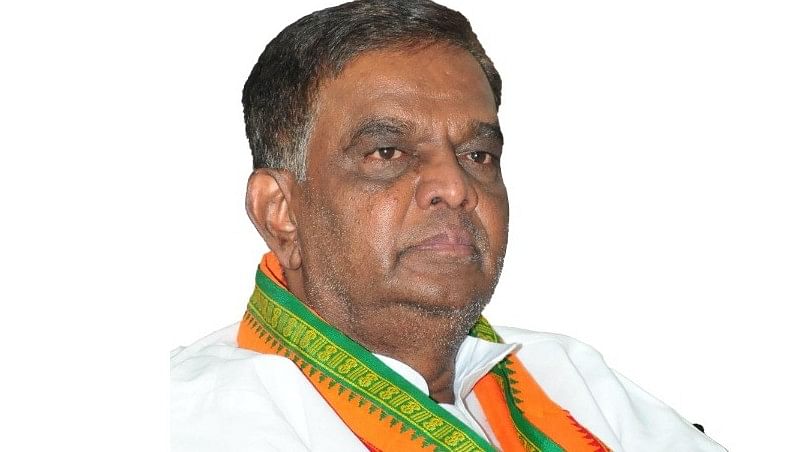
V Srinivas Prasad.
Credit: DH Photo
V Srinivas Prasad, announced his retirement from politics on March 17, has faced 14 elections in his 50-year career, winning eight of them. He contested nine Lok Sabha polls from Chamarajanagar constituency and won six of them. He was Union Minister in the Vajpayee Cabinet from 1999 to 2004. With a vast experience of electoral politics and campaigning, he speaks to DH’s T R Sathish Kumar on the evolution of elections over the decades and what changes can be expected in future. Excerpts:
How has electoral politics evolved over the past five decades?
There is a vast difference in politics and elections, between my first election on March 17, 1974, and now. Those days, we were penniless. We had good intentions. People expected nothing from us. Leaders also worked for the candidate selflessly. There were not much expenses. We would win elections by winning the confidence of people. Former chief minister S M Krishna recently stated that even for an Assembly election, some candidates spend up to Rs 150 crore now. Now people, leaders and candidates have become selfish.
Those days, politicians of different parties were just opponents and not enemies. There used to be a healthy discussion and not mud-slinging. Now, political opponents have become enemies.
How can we move towards reformation in politics and elections?
Both voters and political parties should change. Parties should stop giving false promises and inducements. Instead, they should field good candidates. The voters should understand the sanctity of their vote. They should make good use of it to elect the best candidate.
Is internal democracy missing in political parties?
Earlier, the party high command used to take local leaders into confidence while finalising a candidate. Now, despite claims of surveys among voters and consultation with party workers and leaders, candidates are being imposed by the high command. Internal democracy - to elect office-bearers and to select candidates - can be a step towards political and electoral reformation.
Has the onus of winning an election shifted from party to the candidates themselves, with money-power playing a major role?
If an affluent candidate is imposed on the party, local leaders should oppose. Local leaders will be aware of the sentiments and expectations of voters in their respective constituency. Earlier, leaders were selfless. They organised the parties and contested elections on principles. Leaders used to be accessible and people-friendly. Moneyed people were kept away.
What is an ideal election, in your viewpoint?
No election can be cent per cent honest under prevailing conditions. The number of informed and awakened electorate has diminished. Their numbers should multiply. Earlier, there was a perception that Indian voters are the shrewdest in the world, despite the limitations, like illiteracy, poverty, superstitions and casteism.
What is the basic need of a democracy?
A stable government and a prominent opposition are the basic needs of a democracy. Even if one single opposition party does not have the numbers required to have a recognised Opposition leader, all opposition parties can join hands to choose a common leader and appoint an official Opposition leader. Voters also should think and elect a stable government.